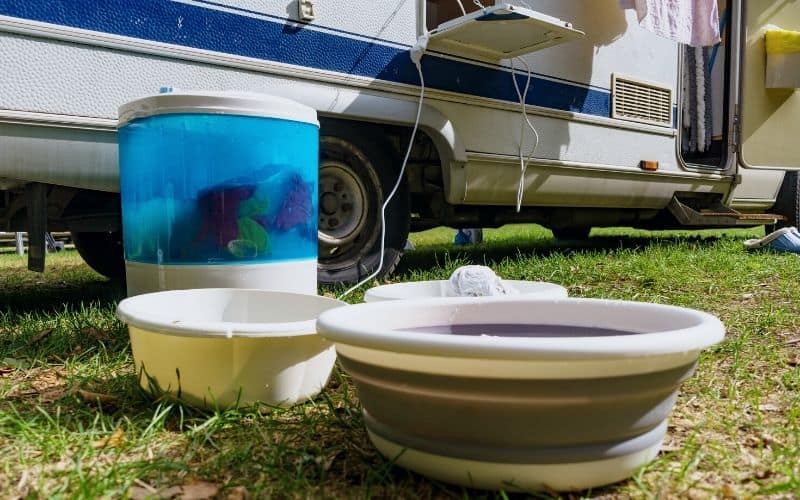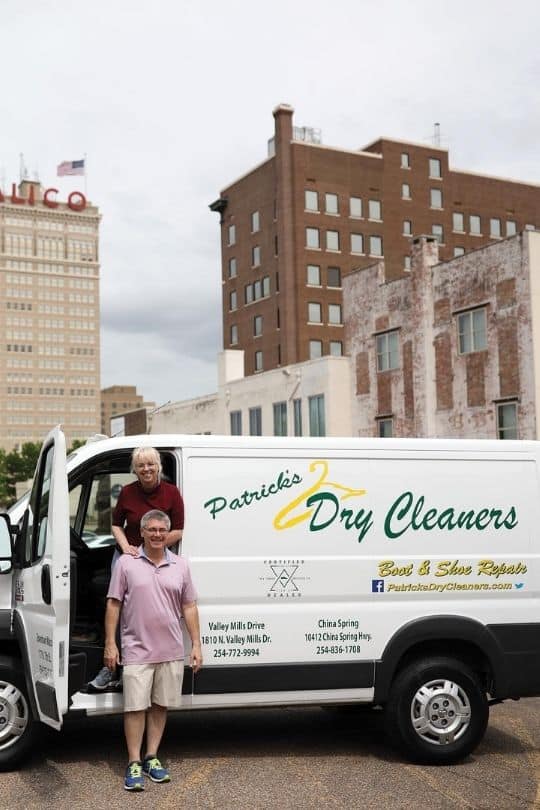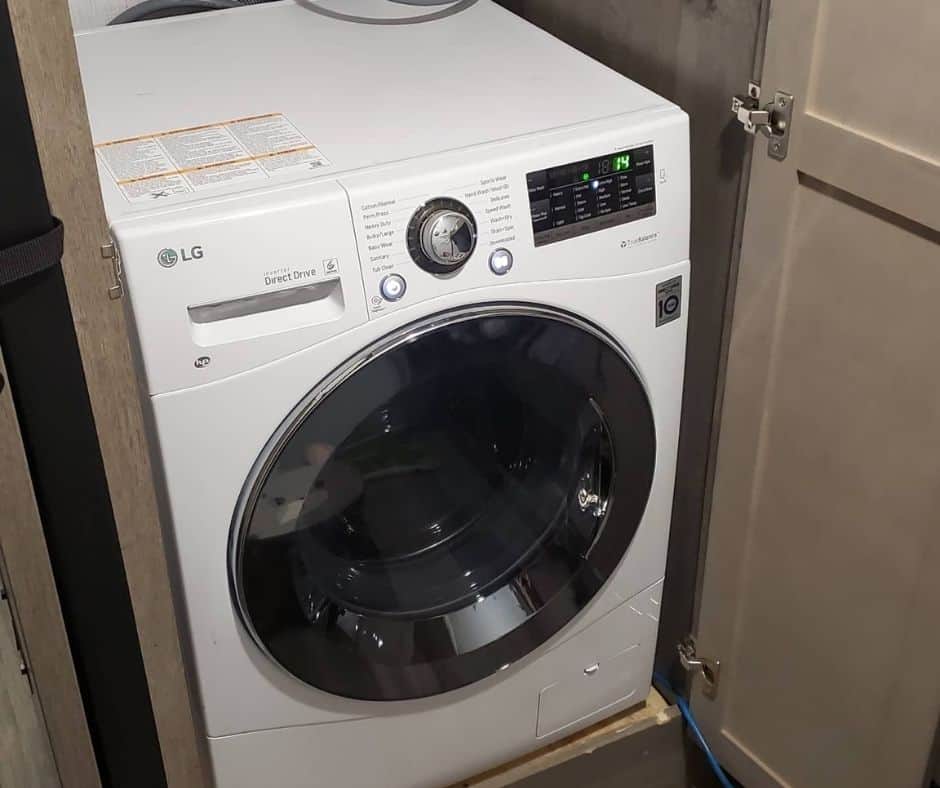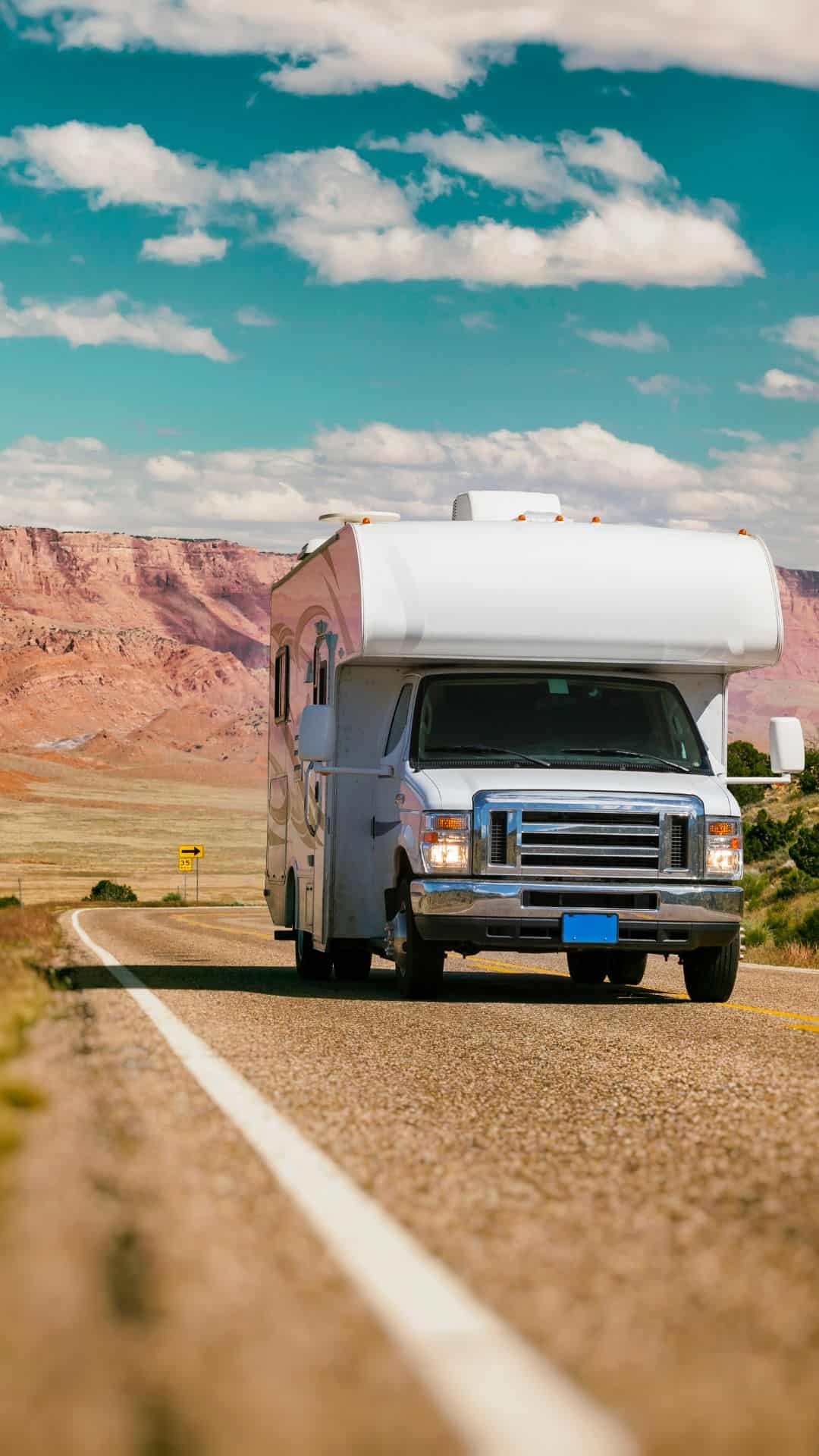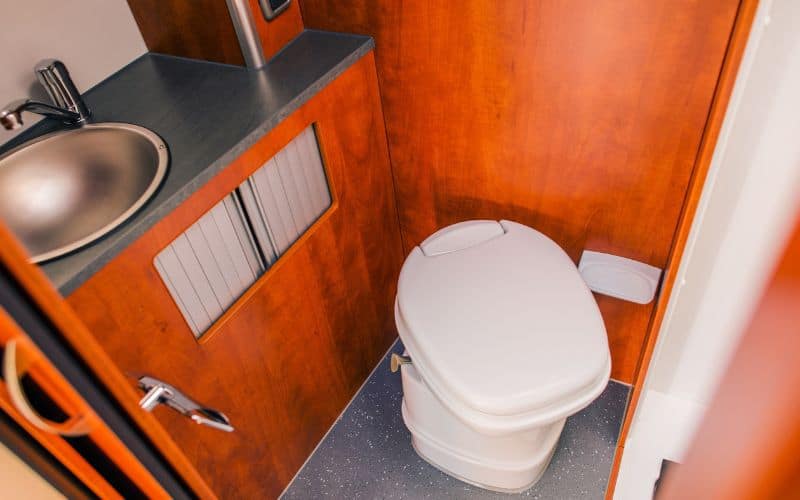The concept of doing laundry on the road can be one of the more elusive aspects of RVing for new RVers.
There may be a chance that you have a washer and dryer already installed in your RV, but this is a rare occurrence, and many RVers have concerns with how well the machine washes and dries clothes.
From the most basic options to the ones that require a bit more preparation (but can be so worth it), let’s take a look at all the ways you to keep your clothes smelling fresh and looking great when traveling in an RV!
Traditional Options
Listed below are some of the more common options that come to mind when it comes to laundry day.
You may find that some are more convenient than others – whether it’s from a storage standpoint of only having to store laundry detergent, or from a more logistical standpoint of having larger loads to get done.
1. Using Public Laundromats
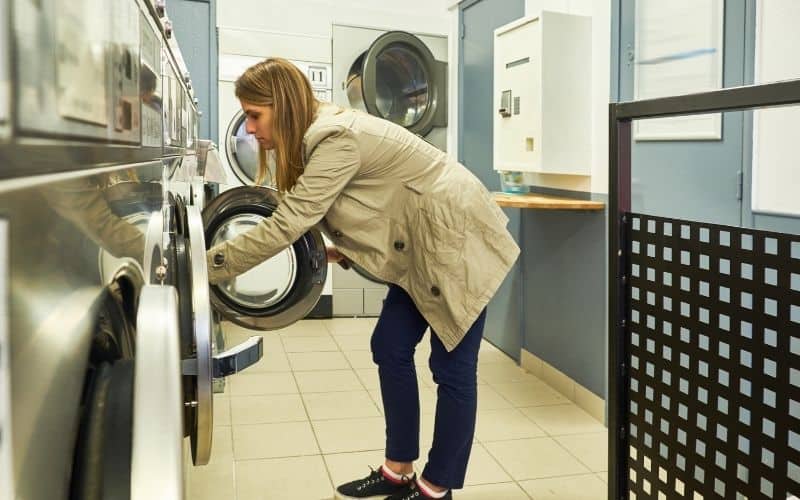
The laundromats that are available in public places are some of the best places to accommodate large loads at one time, which is a common occurrence when you do not have a washer installed in your RV.
There are also many public laundromats that have detergent and dryer sheets – so there is no need to worry about supplies taking up a lot of space in your home.
The downside to public laundromats, however, is that you will spend a considerable amount of money using them.
In addition, one of the last things you want as a traveler is to deal with the constant uncertainty of price changes from one laundromat to another.
Budgeting can be difficult in this scenario since you cannot predict whether the price will be the same.
Pros
Cons
2. Use Campground Laundry Facilities
Some RV parks will have laundromats where members of the camp can go do their laundry for a fee. This is extremely convenient as it’s usually within walking distance of your RV.
The biggest disadvantage is the fact that you may not always be able to find a laundromat in your campground.
In addition, you will need to provide your own detergent and dryer sheets since they are often not for sale, and this can take up quite a bit of space depending on how you store them.
Pros
Cons
3. Hiring A Laundry Service
For the RVers with a lack of time on their hands, you may find that this is the option that makes the most sense for you.
Typically services will come to pick up your clothes and return them washed and folded within a day or so.
One of the biggest considerations of this is that not all laundry services are created equal, so for a traveler, this requires heavy research into every place you plan to visit.
Other considerations come with the treatment of more delicate laundry, as mishaps can happen and your clothes may go missing or shrink.
Pros
Cons
Cost Effective Options For Doing Laundry On The Road
For the RVer who is cost-conscious, you might be wondering what some of the most cost-effective options are.
These can range from hand-washing, to using a washer already installed in the RV. Overall these are some of the best options we’ve compiled:
1. Use a Mini Washer In Your RV
Among the most interesting innovations found online is a sink-size washing machine that can be folded for easy storage.
In addition to being great for small spaces, this is one of the two cheapest options in the long run on our list!
The suction cups on the bottom secure the spinner firmly to the bottom of your sink so it doesn’t fly out as it spins.
If you are looking at investing in one of these, the first thing you should know is that they do not have a drying feature.
Once you finish spinning the laundry, you need to either find a means of hanging it over the shower door with a towel on the bottom to catch the drips, or set up a clothesline outside.
Additionally, since this will fit inside your sink, you will only be able to wash a small amount at a time, so be sure to plan things out accordingly.
Pros
Cons
2. Install And Use An RV Washer-Dryer
There are a number of RV models available in the market that are equipped with washers and dryers.
Typically, these units are two-in-one models to save space and make their use more efficient.
Despite the fact that there are a number of attractive combo models, a majority of the ones you’ll find in RVs are generic brands. This can often lead to a less than satisfactory washing job.
Some of the most common complaints range from issues with drying clothes to the unit leaking and causing problems with the baseboards.
You can take a lot of preventative measures in order to avoid leaks and to set up a line for clothes that are still damp after washing them, but you should still be prepared to deal with some issues with these units.
Additionally, there are many remodeling groups on Facebook that have purchased their own combo washer/dryer. This can be a fantastic (but pricey) option to make the laundry process easier.
Pros
Cons
3. Hand Wash Your Dirty Clothing
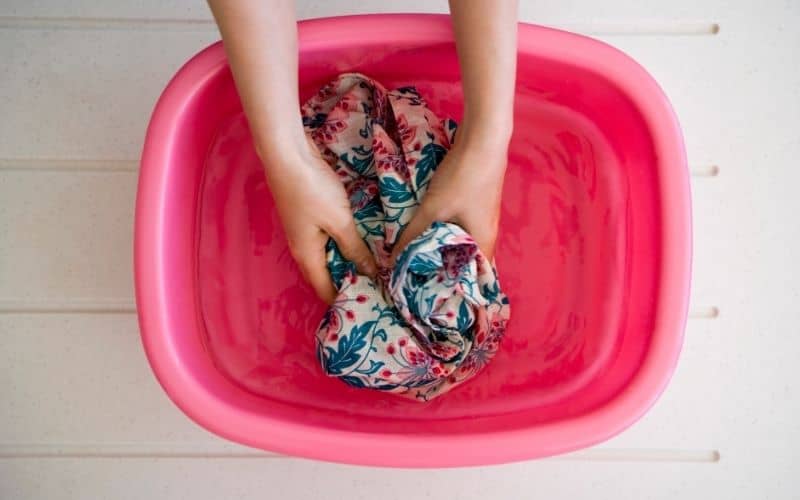
A great alternative to many of the methods we discussed in this article is to hand-wash your laundry if you are willing to put in a little elbow grease.
It will take a considerable amount of time to perform this task while you are traveling on the road, so you might want to block out the whole day if you decide to go this route.
If you have a tub in your RV that is likely your best option for washing your clothes by hand, but if you don’t you can use a large plastic bin instead.
There is one great thing about using the bin, and that is that it can be done inside or outside.
It is important to keep in mind, as with some of the other methods, that drying may also be an issue when using this method.
This method is the best one if you have a lot of time on your hands to complete this task and are looking to save money. However, it is not a top recommendation.
One disclaimer with this method is the matter of hang drying your clothes; while some campgrounds allow lines on your property, others strictly prohibit it, so it’s worth checking with the office of where you’re staying to make sure you won’t get in trouble.
Quick Guide To Handwashing:
While you can wash your clothes outside, for this method we recommend doing it inside so you can freely dump your soapy/dirty water (for the sake of simplifying things, we’re using a storage bin for instructions)
Pros
Cons
Where To Store Dirty Laundry
The storage of dirty laundry in an RV can be a difficult task due to the small space available to you; it can be very difficult to find a suitable area where your dirty clothes are able to be stored!
However, there are several different ways in which you can do this.
There are a variety of hampers available that attach to closet doors, laundry bags that can fit into small spaces, and even corner hampers that can easily fit into any corner of your home
There are many RVing groups on Facebook that are dedicated to remodeling your RV to maximize your space, and many of them have touched on exactly how to optimize your storage space for RVs, even making built-in hampers to keep things tidy.
Can You Get Dry Cleaning on The Road?
Sometimes when you go on the road, you may find yourself unable to part with some of your more delicate dry clean only outfits.
You may be wondering, can you get dry cleaning? The short answer is yes, as many dry cleaners operate on drop-off and pick-up services.
So long as you’re staying in one location for an extended period of time, you can definitely utilize these services!
You may notice some articles of clothing say “dry clean” and others say “dry clean only” – so, what’s the difference? Mostly it comes down to designer preference.
If you see “dry clean,” you’re in the clear to wash it as normal, the designer just believes that the item looks best dry cleaned. “Dry clean only” is much less lenient and cleaning these items in the washer can result in your clothes getting damaged beyond repair.
The general rule of thumb for items that need to be dry cleaned are silk, leather, wool, suede, and anything with the “dry clean only” tag.
Some others you may not expect is anything heavily soiled to get out stains (regardless of whether or not it needs to be dry cleaned,) and occasionally denim – while you can wash denim normally, pure denim does look best when dry cleaned.

